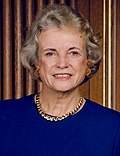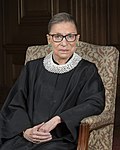The Henry J. Friendly Medal is an award given periodically by the American Law Institute (ALI) in recognition of outstanding contributions to the field of law. [1] [2] It is named in honor of Judge Henry Friendly of the United States Court of Appeals for the Second Circuit. [3] [4] The medal is conferred to an individual for their contributions "in the tradition of Judge Friendly." [5]
Contents
The award is reserved to some of the most influential modern jurists, including Judge Merrick Garland, and U.S. Supreme Court Justices Anthony Kennedy, Ruth Bader Ginsburg, and John Roberts. [6] It is the most prestigious award given by the ALI. [7]














